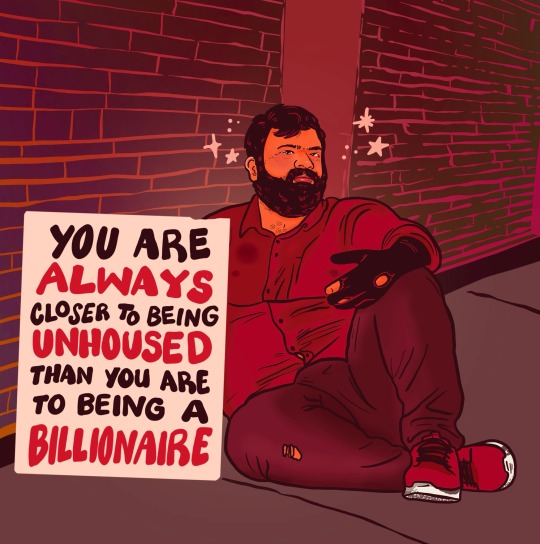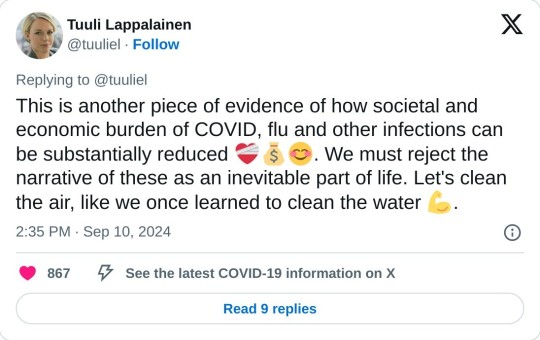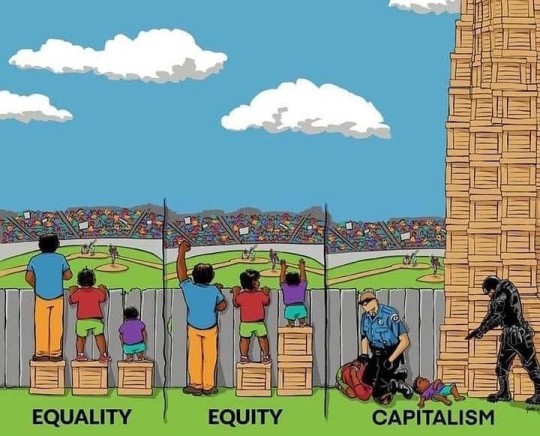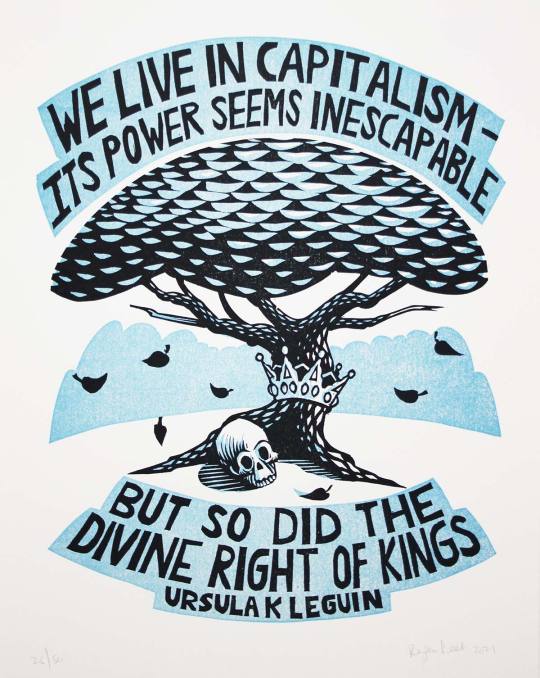#Economic Justice
Explore tagged Tumblr posts
Text

#art#feminism#feminist#illustration#capitalism#unhoused#housing#housing justice#class struggle#class solidarity#economic justice#social justice#drawing
2K notes
·
View notes
Text
Justice 40
Joe Biden is boring and often bad at tooting his own horn, but by god, he is good at process.
Justice 40 is simple but powerful application of that. its a shift in how the executive branch works. 40% of money from a bunch of existing programs should go to census tracts that are overburdened with pollution, at higher risk for climate change, and have been historically underserved.
The shorthand here is basically "communities that don't have enough internal resources to deal with long term problems". So yes, communities that had been redlined for decades, ones that have Superfund sites, ones that have high rates of asthma from air pollution.
and this is by census tract. Not city. census tract. So parts of New York City qualify... but other parts don't. And the city HAS to use the money in the targeted part. it doesn't go into the communal pool. it's for THAT tract specifically.
Also all land federally recognized as belonging to a Native American tribe and all Alaskan Native Villages qualify, specifically.
And again, this is for existing programs that are already running and have existing staff and budgets. They're supposed to prioritize grants and projects for those areas specifically. And that's everything from Department of Agriculture, to FEMA, to Labor, to Environmental Protection.
Does it instantly get rid of all the baked in racism from decades past? No, not even close. But it puts in a countermeasure that has a concrete and measurable goal to aim for rather than a nebulous "suck less." even if the administration changes, many of those changes will stick.
And as things improve, some tracts may come off the list! Some may go on that weren't there before!
You can see a map here. Blue highlighted tracts are "disadvantaged" so qualify for that extra assistance! Check and see if you live in one or part of your town does. Because if you've been hearing constantly "we can't afford to fix X problem..." and you're in that tract.... there's money available. For you. Build that sidewalk, fix those lead pipes, get that brush truck your volunteer fire department has been asking for.
And tell your local officials that! "did you look at Justice 40 for funding". And even if they're doing their best, particularly people in little towns.... being a government official isn't their full time job. They may have missed it. Just asking them about the program may suddenly open a world of possibilities.
9K notes
·
View notes
Text


#global politics#covid pandemic#covid#covid tag#economic justice#health justice#public health#we don't have to live like this#nobody should have to drink dirty water and get sick over and over#and nobody should have to breathe dirty air
2K notes
·
View notes
Text

#equality#equity#capitalism#wealth inequality#one percent#economic justice#social inequality#economic exploitation#class divide#capitalism critique#systemic inequality#wealth hoarding#social justice#fairness#capitalism vs equality#equity vs equality#economic disparity#power imbalance#corporate greed#exploitation of labor#wealth concentration#capitalism failures#class oppression#socioeconomic inequality#rich vs poor#economic injustice#poverty trap#capitalism and inequality#wealth distribution
409 notes
·
View notes
Text

Artist credit:
#ursula k. le guin#hopepunk#hope punk#solar punk#solarpunk#futurism#climate and environment#climate action#climate hope#climate chaos#clean energy#capitalist society#capitalism#capitalist dystopia#resistance#faith in the future#economic justice#workers rights#imagine better
2K notes
·
View notes
Text
Eating a rich person can feed a family of four for a few months.
But:
Taxing a rich person can feed a whole community for many years.
242 notes
·
View notes
Text

#fight oligarchy#resist#activism#rise up#economic boycott#economic justice#resistance#economic blackout#boycott
89 notes
·
View notes
Text

#economy#christianity#christian faith#jesus#us politics#economic justice#political quotes#western politics#i live in the us#america#donald trump#donald trash#fuck trump#anti maga#maga cult#jesus christ#jesus x judas#philosophical quotes#quotes from books#feminist quotes#political memes#politics#political
82 notes
·
View notes
Text

Average
It is so hard to communicate how extreme the income distribution is in the US. Exponential is not sufficient to model it. And income distribution is more even than wealth!

From the World Economic Forum.

Notice the funky log scale on the x-axis.
138 notes
·
View notes
Text

Nothing more expensive than being poor.
Digital illustration of the back of a person's jacket. There's a James Baldwin quote that reads, "Anyone who has ever struggled with poverty knows how extremely expensive it is to be poor'
#art#feminism#feminist#poverty#class#economic justice#fight poverty not the poor#capitalism#james baldwin#social justice#intersectionality
1K notes
·
View notes
Text
#target#target boycott#economic blackout#economic boycott#economic justice#economy#fight oligarchy#fight corporate greed
35 notes
·
View notes
Text



#amazon boycott#amazon blackout#amazon#boycott#economic boycott#economic blackout#economic justice#tax the rich#tax the billionaires#rise up#resist#nonviolent mass resistance
40 notes
·
View notes
Text
April 18, 2025: I want a president, Zoe Leonard
I want a president Zoe Leonard
I want a dyke for president. I want a person with aids for president and I want a fag for vice president and I want someone with no health insurance and I want someone who grew up in a place where the earth is so saturated with toxic waste that they didn’t have a choice about getting leukemia. I want a president that had an abortion at sixteen and I want a candidate who isn’t the lesser of two evils and I want a president who lost their last lover to aids, who still sees that in their eyes every time they lay down to rest, who held their lover in their arms and knew they were dying. I want a president with no airconditioning, a president who has stood on line at the clinic, at the dmv, at the welfare office and has been unemployed and layed off and sexually harassed and gaybashed and deported. I want someone who has spent the night in the tombs and had a cross burned on their lawn and survived rape. I want someone who has been in love and been hurt, who respects sex, who has made mistakes and learned from them. I want a Black woman for president. I want someone with bad teeth and an attitude, someone who has eaten that nasty hospital food, someone who crossdresses and has done drugs and been in therapy. I want someone who has committed civil disobedience. And I want to know why this isn’t possible. I want to know why we started learning somewhere down the line that a president is always a clown: always a john and never a hooker. Always a boss and never a worker, always a liar, always a thief and never caught.
==
Primarily a visual artist, Zoe Leonard wrote this in the early 1990s. You can see the original here and a cool out-of-print book version here.
More prose poems.
Today in:
2024: Fourteen, Marie Howe 2023: I wanted to be surprised., Jane Hirshfield 2022: Short Talk on Waterproofing, Anne Carson 2021: Cindy Comes To Hear Me Read, Jill McDonough 2020: from This Magic Moment, David Kirby 2019: Poem In Which I Become Wolverine, José Olivarez 2018: In the Beginning God Said Light, Mary Szybist 2017: from Contradictions: Tracking Poems, Adrienne Rich 2016: I Said Yes but I Meant No, Dean Young 2015: Cardinal Cardinal, Stephen Dunn 2014: Ezra Pound’s Proposition, Robert Hass 2013: Wistful sounds like a brand of air freshener, Bob Hicok 2012: Not Getting Closer, Jack Gilbert 2011: Written in Pencil in the Sealed Railway-Car, Dan Pagis 2010: The Moss of His Skin, Anne Sexton 2009: It’s This Way, Nazim Hikmet 2008: The Problem With Skin, Aimee Nezhukumatathil 2007: Serenade, Terrance Hayes 2006: The Old Liberators, Robert Hedin 2005: Morning Song, Sylvia Plath
#poetry#poem#politics#queer#manifesto#queer poets#zoe leonard#race#justice#social justice#economic justice#who put this brain inside of me?
20 notes
·
View notes
Text
Fuck Israel and Everyone Defending It!!!!!

View On WordPress
24 notes
·
View notes
Text

#fight oligarchy#resist#activism#rise up#resistance#economic boycott#economic justice#economic blackout#boycott
52 notes
·
View notes
Text
So, the Luigi Mangione situation has been consuming my thoughts for days. Honestly, I’m surprised to see even those who typically consume right-wing media starting to connect the dots.
Kyle Rittenhouse was hailed as an “American patriot” and a “hero” by right-wing media like Fox and co, not because they’re anti-establishment but because they blindly support the establishment. After his acquittal, conservative media framed his actions as self-defence, the ultimate embodiment of “law and order.” But let’s be honest—this wasn’t about justice or morality. It was about doubling down on a toxic gun culture, one that upholds violence as a virtue when it aligns with their politics.
Take Donald Trump, for example. He’s their golden boy, the so-called saviour of the working class, but what did he actually do for anyone struggling to make ends meet? He gave billionaires a massive tax break, slashing corporate rates to 21% and leaving crumbs for everyone else. Universal healthcare? Forget it. Trump spent years trying to dismantle the Affordable Care Act without even pretending to offer an alternative. And wages? They stagnated while he bragged about a booming economy. He couldn’t stop talking about low petrol prices—as if that fixes lives ruined by medical debt or the soaring cost of living. Meanwhile, his obsession with fracking wasn’t about energy independence; it was about making oil companies richer.
Trump’s entire existence is proof that capitalism rewards incompetence if you’re born into the right family. He’s failed at business after business, but the money and connections always find their way back to him, bringing power along for the ride.
Now compare that to someone like Luigi Mangione. Here’s a guy from a privileged background—an Ivy League graduate, no less—who allegedly assassinated UnitedHealthcare’s CEO, Brian Thompson. And why? Because Mangione had seen enough of the system Thompson profited from: a healthcare industry that lets people die while executives rake in bonuses. Mangione reportedly left behind a manifesto condemning health insurance companies for putting profits over people. Even Daily Mail readers, who’d normally back the establishment, are expressing sympathy for him and calling out billionaires. When even the most propagandised audiences are waking up, you know something’s wrong.
This isn’t complicated: poverty kills. Debt kills. And billionaires like Thompson—who faced criticism for policies that punished patients seeking emergency care—are perfectly comfortable profiting off that suffering. They sit in their towers, insulated from the consequences of the system they exploit, while working-class people are forced to choose between survival and dignity.
What billionaires should really fear is us realising we’ve been played. For decades, they’ve worked to convince us our biggest threats are each other—minorities, immigrants, anyone but them—when they’re the ones pulling the strings. Without our labour and endless, soul-crushing consumption, they’re nothing.
Do I feel bad for a billionaire who’s scared? Not in the slightest. They don’t know fear the way we do. They don’t have to worry about eviction notices or medical bills. They’ve convinced us their success is aspirational, but it’s all a con—a rigged game that keeps them on top no matter what.
I hope the Luigi Mangione case sparks a backlash they can’t ignore. I hope it forces people to confront how deeply this system has failed us. The media will try to spin it, of course. They’re already working to humanise people like Thompson, men who built their careers on denying claims and leaving sick people to fend for themselves. Meanwhile, these same journalists won’t write about kids being pushed into poverty or the way empathy disappears when a rapist gets elected to office. It’s so absurd it feels like a cruel joke—like we’re being manipulated for laughs as reason abandons our collective psyche.
People have turned this murder into a meme, and they’re being condemned for it. But billionaires, propped up by the likes of Murdoch, have relied on our desensitisation for decades to amass wealth and control political narratives. The internet makes that harder for them now, and they know it.
And people are tired. We misdirect our anger into the wrong places, often at each other, and can you blame us? What have protests actually accomplished lately? Millions marched for Palestine—one of the largest demonstrations in recent memory—but did it stop the US or UK from backing Netanyahu? Of course not.
So where do they think all this frustration is going to go? Because one day, it’s going to boil over—and no amount of money or media spin will protect them.
#billionaires#capitalism#poverty#wealth inequality#social justice#politics#economic justice#kyle rittenhouse#luigi mangione#brian thompson#donald trump#why is this my first post lol having a crisis so bad i needed to write on tumblr for the first time in years
35 notes
·
View notes